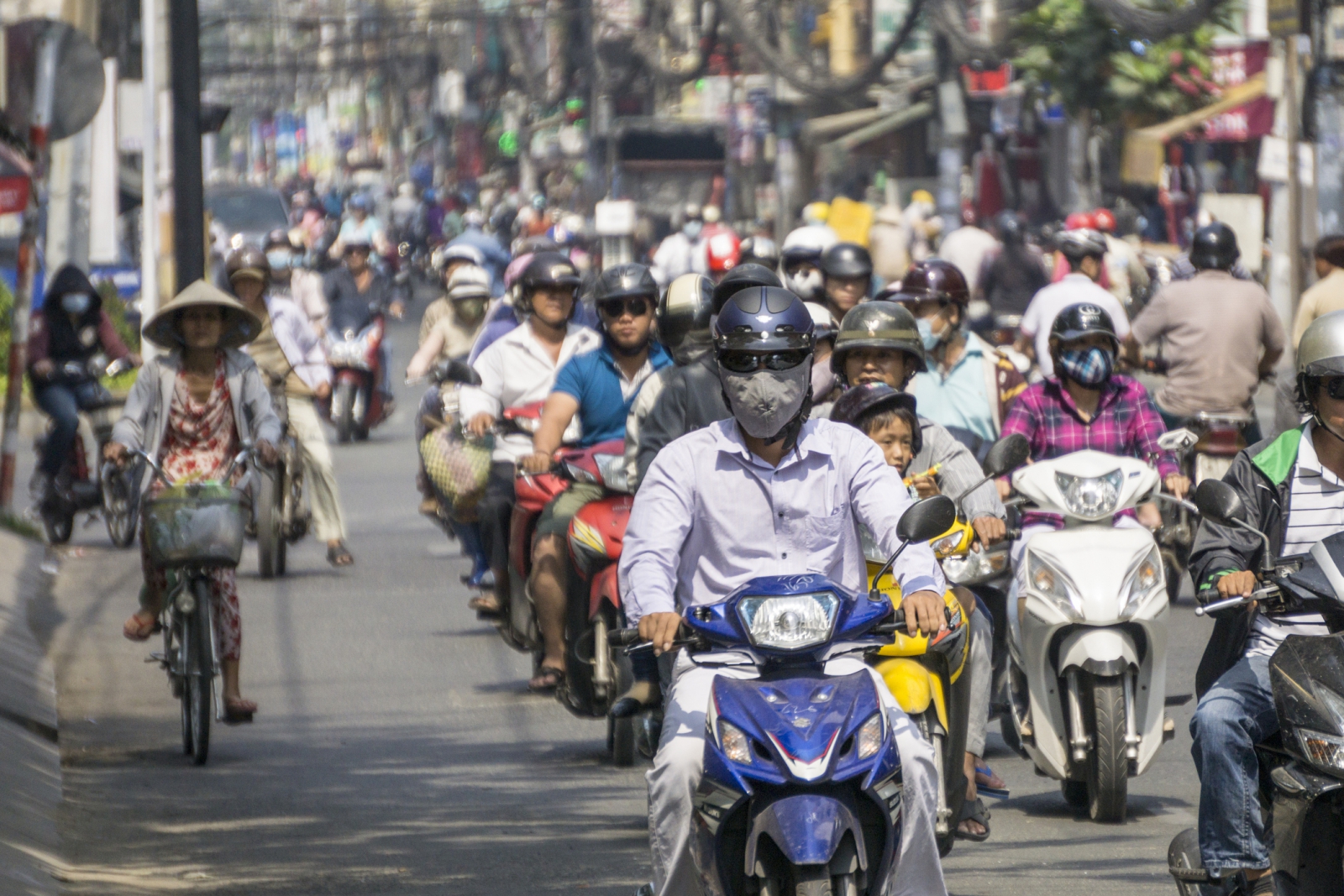
Vietnam's heavy use of motorcycles contributes to severe air pollution and high carbon emissions. (Photo: iStock)
Ho Chi Minh City and Hanoi are taking the lead in advancing green transport. Ho Chi Minh City plans to build a battery recycling center for electric vehicles (EVs), aiming to become a key player in the global green economy supply chain.
Meanwhile, Hanoi is preparing to launch incentives for residents to switch to low-carbon motorcycles, including cash subsidies of up to VND 5 million (about USD 191).
Ho Chi Minh to build battery recycling center for precious metal
To prevent environmental issues caused by discarded EV batteries, Ho Chi Minh City intends to construct a battery recycling facility with an estimated annual processing capacity of 3,000 tons. In addition to recovering valuable metals and lowering the production cost of new batteries, the project is expected to help pave the way for the city’s integration into global green supply chains.
Nguyen Van Duoc, Chairman of the Ho Chi Minh City People’s Committee, stated at a recent green transition forum that green transformation is not only a strategic path to economic security, but also key to attracting investment and creating export opportunities. He pledged to prioritize investment in research centers that meet international standards and support startups developing technologies in environmental protection, energy, and new materials.
According to the Ho Chi Minh City Institute for Development Studies, up to 90% to 95% of metals in batteries can be recovered, and used batteries themselves can be repurposed for solar power storage systems or electricity supply in rural areas.
The city also plans to gradually phase out fuel-powered vehicles starting in 2026, including replacing 400,000 motorcycles used for ride-hailing services with electric models. Nguyen called on businesses to embrace the green transition as an opportunity for innovation, market expansion, and brand enhancement, not merely a compliance task.
.jpg)
Ho Chi Minh City plans to build a battery recycling center for electric vehicles. Pictured is a fleet operated by VinBus, an electric bus investor. (Photo: VinBus)
Hanoi to offer cash subsidies for low-carbon vehicles
Hanoi is drafting new incentive measures following its announcement to ban fuel-powered motorcycles from entering the city center starting July 2026. In addition to offering direct subsidies and preferential loans, the city will require buildings to increase EV charging infrastructure to lower the adoption barriers for electric motorcycles.
According to the draft policy, vehicle owners living in designated low-emission zones who switch from gasoline or diesel motorcycles to low-carbon models priced above VND 15 million (about USD 573) will be eligible for a one-time cash subsidy by 2030.
Subsidy amounts will vary by status: VND 3 million (about USD 114) for general individuals, VND 4 million (about USD 152) for near-poor households, VND 5 million (about USD 191) for poor households. The city government will also cover new vehicle registration and license plate fees, as well as part of parking fees.
Government agencies, public transport and freight companies, and businesses investing in old vehicle disposal may also qualify for low-interest loans covering 100% of the new vehicle cost, with interest rates of 3% to 5% annually and a repayment period of up to five years.
As for EV charging infrastructure, by the end of 2026, 10% of parking spots in existing buildings must be equipped with chargers, while new buildings will be required to meet a 30% installation rate. To encourage public-private collaboration and accelerate low-carbon vehicle adoption, the city plans to offer subsidies on loan interest and land leasing for charging facility installation.
Source: The Investor(1), (2), Vietnam News, Vneconomy
.jpg)


